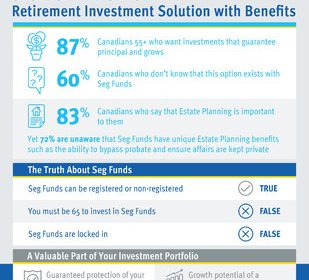High-net-worth Canadians shift focus from generating wealth to preserving what they have
Market uncertainty, geopolitical turmoil and home-grown tax changes have Canada’s wealthiest citizens shifting their focus from increasing their wealth to protecting what they have. In a recent global survey1 sponsored by RBC Wealth Management and conducted by the Economist Intelligence Unit, the richest Canadians ranked protecting wealth for the future highest (53%) in a list of financial goals, well above increasing their wealth (34%). When asked what factors most concern them when it comes to preserving wealth, Canadian tax changes were highest on the list (48%) followed by global economic uncertainty (46%) and increased cost of living (45%).
These sentiments are familiar to Tony Maiorino, Head, RBC Wealth Management Services, who leads a team of 200 tax planning, legal and financial planning experts: “While investment and portfolio management remain a priority, increasingly, we find that our high-net-worth clients are asking us for guidance and support in the areas of tax strategy, wealth preservation, estate planning and philanthropy.”
While only a third of wealthy Canadians are concerned about market uncertainty in Canada (34%), two thirds (63%) said they are far more attentive to their portfolios now than in the past because of the current economic cycle and 76 per cent agreed that today’s market requires investors to be more flexible and more responsive.
Future-proofing wealth, enjoying experiences more important than material goods
Despite healthy bank accounts, a majority of wealthy Canadians said it’s important that they not appear ‘showy’ with their money (77%) with less than half (42%) agreeing that buying luxury goods makes them feel good about what they have accomplished. While it’s tempting to attribute this to stereotypical Canadian modesty, the Canadian numbers were in line with global findings. Almost three quarters of Canadian respondents (74%) agreed they prefer to spend their money on experiences rather than material goods.
And while 81 per cent of older2 high-net-worth Canadians feel they are not obligated to leave their children an inheritance, more than half (57%) plan to use their money to support the success of their children both personally and professionally.
Widening gap in approach to equality between younger and older wealthy Canadians
Generally, survey responses don’t vary between older and younger3 high-net-worth Canadians but the gap starts to widen when it comes to their approach. Younger Canadians are more likely (73%) than older Canadians (66%) to agree there should be a balance between personal wealth creation and ensuring equal opportunities to accumulate wealth across society. And while 62 per cent of all Canadian respondents agreed it’s important to invest ethically, younger wealthy Canadians were more than twice as likely (21%) as older Canadians (9%) to strongly agree with this sentiment. The younger group was also much more likely to say it’s important to consider ESG factors when investing (56%) versus only 27 per cent of older wealthy Canadians.
The generations differ greatly in their comfort level with various asset classes. While stocks are still the main asset of all high net worth Canadians, the older cohort much more likely to hold them (80%) versus the younger group (56%).




